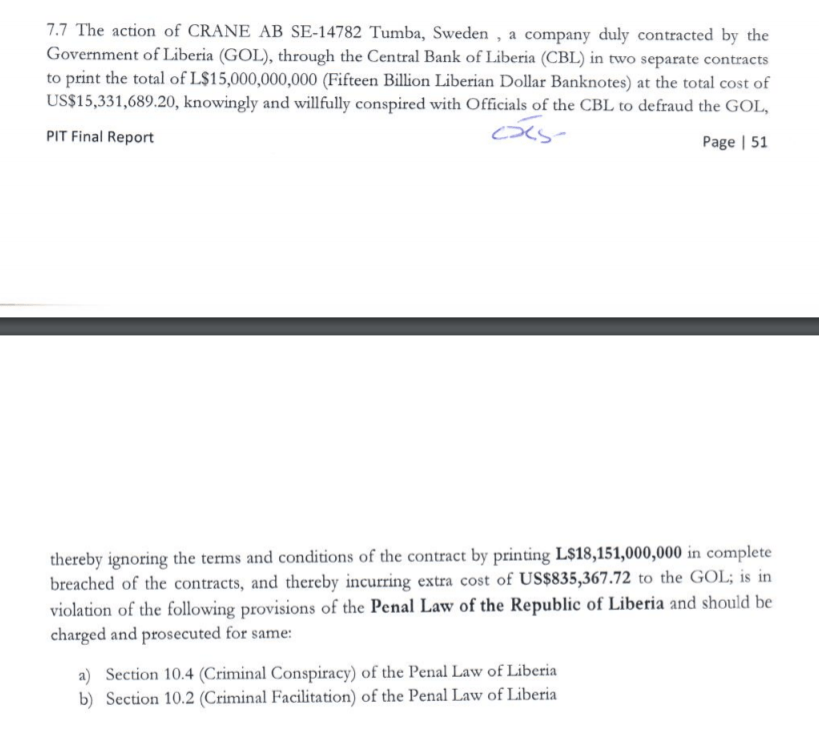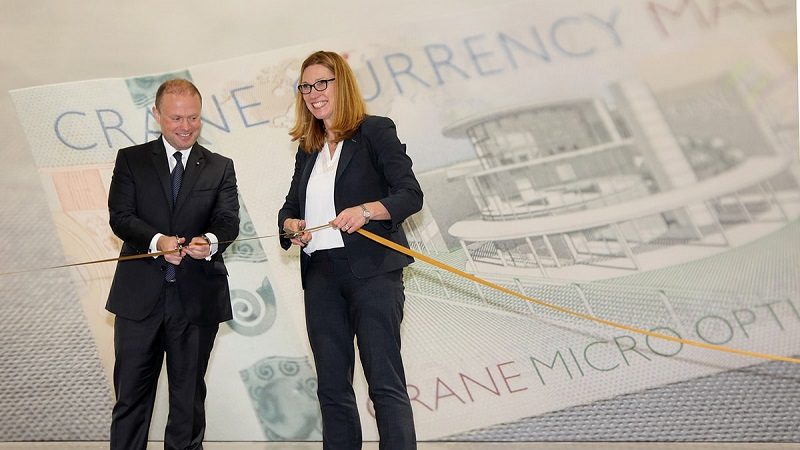Updated to include statement from Crane Currency.
International manufacturer of banknotes, Crane Currency, that recently set up in Malta with the help of the Prime Minister’s chief of staff Keith Schembri has been implicated in “one of the biggest financial scandals in the history of Liberia,” according to news outlets in the country.
The company is accused of receiving a total of €736,142 in kickbacks after it agreed to print additional Liberian dollar bank notes, over and above what was contractually agreed. Almost €14.4 million worth of local currency is alleged to have been printed illicitly and then funneled into the Liberian economy.
Only yesterday, Prime Minister Joseph Muscat inaugurated a customer care centre at Crane Currency’s Malta plant, praising the company and stating that their presence in Malta had “exceeded expectations”.
Meanwhile, criminal charges have been filed against the company in Liberia by government lawyers that are also pressing for the conviction of a number of current and former senior officials at the Central Bank of Liberia (CBL) who are alleged to have colluded on the massive fraud.

An excerpt from the report on the findings by the Liberian President’s Investigation Team.
Court documents relating to the case state that the funds were “geared towards defrauding the CBL and laundering the said amount”. It is alleged that Crane Currency was well aware of the fact that what they were doing was illegal and that they provided false information and reports on the amount of currency that they printed, in order to cover their tracks.
Alex Cuffey, the head of the Liberian Financial Intelligence Unit (FIU) described a situation of “gross irregularities and breaches of law” by Crane Currency and noted that they had printed significantly more than was stipulated in their contract.
Crane Currency was drawn to set up in the country in 2016 by Schembri, the Prime Minister’s chief of staff. At the time, Muscat had described Schembri as “the catalyst in making sure things got done” in terms of getting the deal signed. He later changed his story and said that Schembri merely “facilitated” the deal.
It was then discovered that Crane Currency would be purchasing printing equipment by Komori, products that were distributed locally by Schembri’s company Kasco. Schembri had said Kasco would not be involved in the supply of machinery, but that it may be tasked with the servicing agreements over the lifetime of the machines.
When asked if he thought Schembri would personally benefit from the deal he had helped facilitate, Muscat has said he had “no clue”. A government spokesperson later declined to comment on whether this arrangement would be a conflict of interest for the chief of staff.
In December 2016, it came to light that Malta Enterprise and the government had committed taxpayers to finance €81 million of loans to “lure” Crane Currency to Malta. Both entities refused to divulge any further information on the incentives stating that it was “secret and confidential”.
Schembri is himself the subject of two magisterial inquiries to establish the need for investigation into two matters: one, to establish whether he received kickbacks related to the sale of passports and, two, to establish whether payments made to the former managing director of Allied Newspapers Adrian Hillman through secret companies amounted to money laundering.
Crane Currency reacts
In response to the article in the Liberian Daily Observer on 6 March, one of the news portals that reported the news, Crane Currency said it has not been charged with any crime in Liberia. “Crane has operated in full compliance with the law and rejects completely any allegation of wrongdoing,” the company said in a statement.
Saying the allegations were “false” and “without merit”, the company added: “Crane fulfilled its contractual obligations as set out in two delivery contracts and two subsequent documented agreements between the CBL for Crane to deliver the finished banknotes, and every banknote delivered was properly invoiced and accounted for. Crane was paid in full the correct amount (and no more) as had been agreed with our Liberian customer for these contracted deliveries of banknotes, and there were no excess or improper payments made by the CBL or any other party”.












